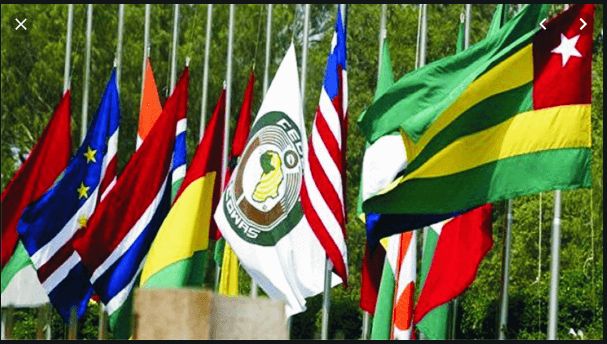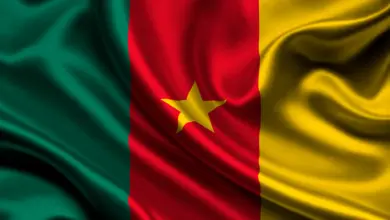The Spanish–French Rivalry in the African Continent

Prepared by the researche : Amr Rashad Ismail – Expert in African Affairs
DAC Democratic Arabic Center GmbH
The Spanish–French rivalry in Africa represents one of the most prominent forms of modern geopolitical competition between European powers seeking to reclaim influence in the Global South. France, as the continent’s traditional dominant power, views Africa as a natural extension of its historical influence, while Spain aims to break this monopoly and assert itself as a new European force within the African sphere. This rivalry rests upon several strategic pillars, including economics, security, migration, and energy. The two nations approach the continent with distinct philosophies: France relies on its historical, linguistic, and military ties, whereas Spain bets on equitable partnerships and developmental cooperation. This divergence in approach has turned their rivalry into a testing ground for European influence in Africa—particularly amid the rise of new powers such as China, Russia, and Turkey, which have profoundly altered the balance of power across the continent over the past two decades.
Historically, France and Spain embarked upon their African ventures through colonial expansion in the nineteenth and twentieth centuries, though the scale of their empires differed vastly. France extended its domination across vast areas of West and Central Africa, while Spanish colonialism remained limited to territories such as Western Sahara and Equatorial Guinea. After African independence movements gained strength, France maintained close political, economic, and cultural ties with its former colonies through the Francophonie framework, whereas Spain gradually retreated from the African stage until the early 2000s. However, recent geopolitical transformations—particularly the irregular migration crisis and Europe’s growing demand for energy—have pushed Madrid to reconsider its foreign policy. Consequently, Spain has refocused its attention on Africa, seeking to reconstruct a network of economic and diplomatic influence suited to the twenty-first century.
Among Spain’s most effective tools for consolidating its presence in Africa are the Spain–Africa Summits, launched officially in 2006. These summits aim to strengthen political dialogue and foster economic and cultural cooperation under the guiding principle of “balanced partnership.” Through these high-level forums, Spain seeks to differentiate itself from other European powers often criticized for perpetuating forms of neo-colonial dominance. Madrid emphasizes sustainable development, education, poverty reduction, and technological innovation, earning goodwill from several African governments eager to diversify their external partnerships. France, on the other hand, views these Spanish initiatives with mounting concern—particularly in regions such as the Sahel and West Africa, which Paris regards as its traditional spheres of influence. From the French perspective, Spain’s expanding diplomatic and economic engagement represents a direct challenge to its historical position on the continent.
France, for its part, continues to rely on its traditional instruments of influence in Africa—ranging from military presence and economic partnerships to linguistic and monetary control through the CFA franc. Paris has justified its ongoing military interventions in the Sahel, particularly in Mali and Niger, under the pretext of counterterrorism. However, this presence has increasingly met with popular resistance, tarnishing France’s image and opening the door to new players such as Spain. Moreover, France’s declining economic performance in Africa—due in part to mounting competition from China and intra-European rivals—has made it more sensitive to any initiatives by fellow EU members. In this context, Spain’s growing activity in Africa, particularly its economic diplomacy and emphasis on soft power, has become a source of unease in Paris, which fears the erosion of its long-standing strategic dominance in what it still considers its vital geopolitical backyard.
Irregular migration constitutes one of the most significant arenas of Spanish–French competition in Africa. Spain views West African nations as essential partners in managing the European Union’s southern border. To this end, Madrid has pursued bilateral agreements with countries such as Senegal, The Gambia, and Nigeria, focusing on development aid in exchange for stricter migration controls. This humanitarian and development-oriented approach has made Spain a more acceptable partner to many African nations compared to France’s security-heavy strategy centered on military deterrence. Spain’s geographical position—close to the Strait of Gibraltar and the Canary Islands—has also made it a key player in Europe’s migration management framework. This role has enhanced its political weight within the EU and accelerated its strategic pivot toward Africa as a central focus of foreign policy in the last decade.
On the economic front, competition between French and Spanish companies has intensified across sectors such as infrastructure, energy, agriculture, and telecommunications. France retains an entrenched presence through major corporations like TotalEnergies and Bolloré, while Spanish firms have sought to penetrate African markets through renewable energy projects, port development, and transportation infrastructure—fields vital to African development strategies. Madrid also capitalizes on its expertise in water management and sustainable agriculture to strengthen trust with African governments. This economic rivalry extends beyond commercial contracts; it reflects a deeper political struggle over influence within the European Union itself. Spain seeks to establish itself as a credible regional power capable of shaping EU policy toward Africa alongside—or even in competition with—France.
the Spanish–French rivalry in Africa illustrates a profound transformation in the nature of Euro-African relations. While France seeks to preserve its colonial legacy and modernize its traditional tools of influence, Spain is constructing a new model of engagement founded on equitable partnerships, sustainable development, and economic diplomacy. As Africa’s role grows increasingly central to the global economy, this rivalry is set to intensify further. Both Madrid and Paris understand that control over energy routes, migration flows, and investment networks in Africa translates into strategic leverage over the emerging world order. Thus, the African continent will remain the primary stage for this “soft power” contest between two European nations competing not only for influence in Africa but also for leadership within Europe’s broader strategy toward the Global South.
Green Gas and Hydrogen as a Source of Spanish–French Rivalry in Africa
The issue of energy—particularly green gas and hydrogen—has emerged as a new and vital front in the Spanish–French rivalry across the African continent. As the world transitions toward clean energy and reduces its dependence on fossil fuels, Africa has become a strategic center for securing new sources of renewable energy. Both France and Spain recognize the continent’s immense potential for producing green hydrogen, given its abundance of solar and wind resources. Consequently, Madrid and Paris are striving to forge long-term partnerships with African nations to strengthen their energy security—especially in the wake of the European energy crisis triggered by the war in Ukraine. This new rivalry is no longer limited to political or military influence; it has evolved into a technological and economic race to secure Europe’s energy future through the African gateway.
France seeks to capitalize on its industrial expertise and the strength of its major corporations, such as TotalEnergies and Air Liquide, to develop hydrogen projects in North and West Africa. Paris relies on its traditional presence in the Sahel and its strong ties with regional governments to sign long-term agreements for the production and transport of green hydrogen to Europe. For France, this file represents an opportunity to redefine its economic influence after its declining role in other sectors. However, it faces major challenges, including internal European competition and growing public resistance within some African countries to what is perceived as a continuation of economic domination. Despite these obstacles, France continues to present itself as a reliable strategic partner that supports the global energy transition through cooperation with Africa.
Spain, on the other hand, has adopted a different approach based on economic integration and energy interconnection with Africa—particularly with Morocco, Mauritania, and Senegal. Madrid leverages its geographical position as a natural bridge between Europe and Africa to position itself as a central hub for distributing green hydrogen across the European continent. It also works to attract European investment toward hydrogen production projects in southern and western Africa, building upon the diplomatic relations it has strengthened through the Spain–Africa summits. Spain aspires to present itself as a future energy power within the European Union, relying on its existing infrastructure for liquefied natural gas, which can be easily adapted for green hydrogen distribution. This ambition places it in direct competition with France, which is reluctant to cede its leadership in the African energy sector.
Green gas and hydrogen have thus become both a field of cooperation and a source of rivalry between Paris and Madrid. Both nations understand that Africa represents the world’s next major energy reservoir. In the midst of Europe’s green transition, each country is striving to secure its future supply of clean energy by investing in large-scale hydrogen production projects across the continent. With the European Union increasingly financing such initiatives, both France and Spain have gained significant leverage in directing investments toward their traditional spheres of influence. Yet this rivalry is not without friction: France fears that Spain could exploit its geographical advantage and growing African partnerships to dominate future routes for exporting renewable energy to Europe. In this way, green gas is transforming into a strategic tool reshaping the map of European influence in Africa.
From a broader analytical perspective, the Spanish–French competition over green gas and hydrogen in Africa reflects a fundamental transformation in Euro-African relations. Instead of the old military or colonial competition, the new contest centers on technology, energy, and green finance. Africa finds itself at the heart of this global transformation, seeking to benefit from European competition by attracting investment, transferring knowledge, and building sustainable economies. Meanwhile, both France and Spain deploy environmental discourse as a diplomatic façade to expand their economic and geopolitical influence. With the rapid development of hydrogen projects in North and West Africa, this sector is poised to become, over the coming decade, the principal arena of competition between the two countries—and potentially the field that determines their future roles within the European Union and in the emerging global energy order.




